- Share via
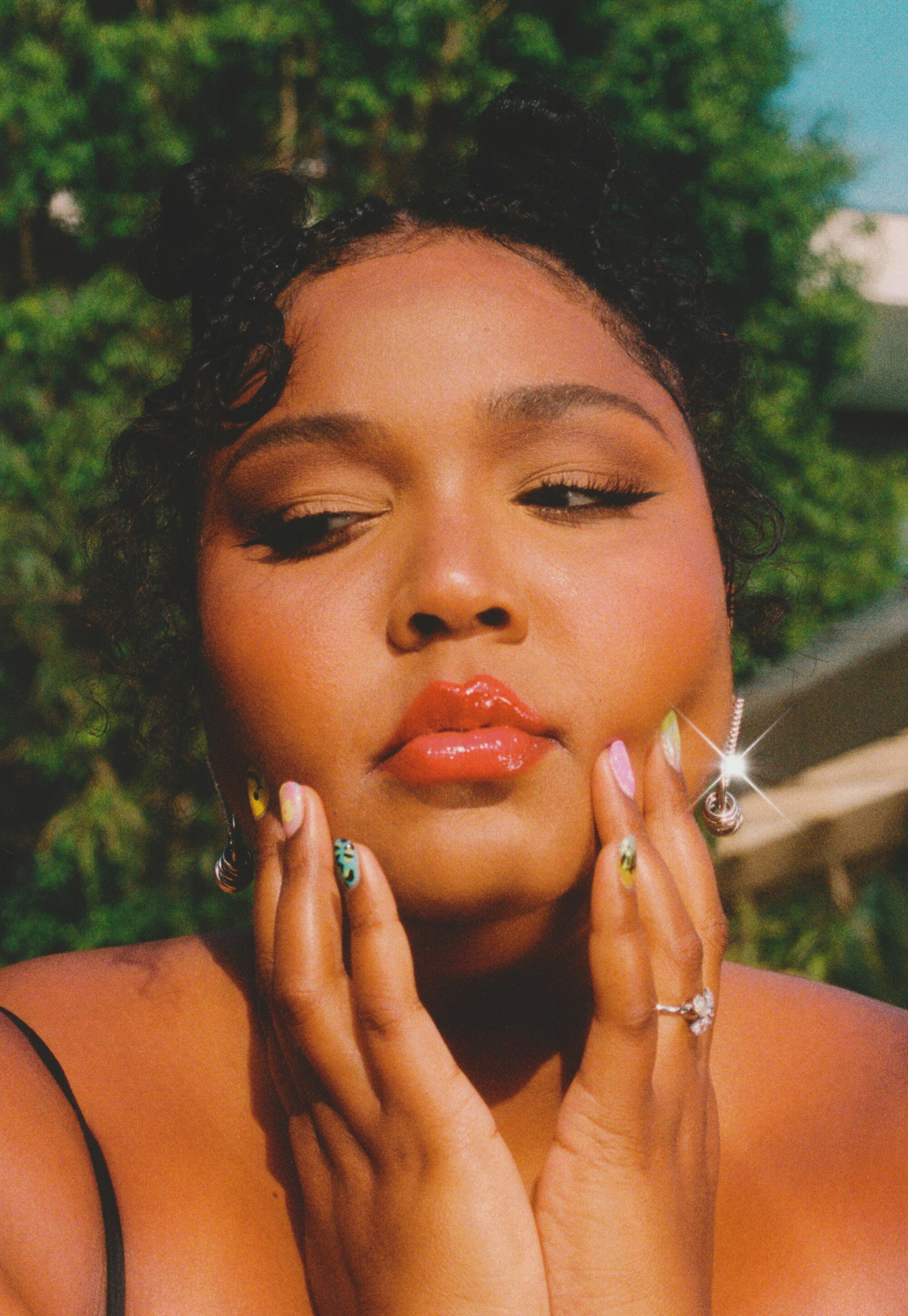
Lizzo’s big year is about to get bigger. Hosting one of the season’s best episodes of “Saturday Night Live,” unveiling her own shapeware line, Yitty, and launching her popular Prime Video show “Lizzo’s Watch Out for the Big Grrrls,” she’s carved a niche for herself as the sisterly pop superstar and budding mogul with the filthy mouth and upbeat attitude. But as she takes a brief break between photo shoots and other promotional duties, she’s thinking about the next stage of her multimedia conquest, the July 15 release of “Special,” the much-anticipated follow-up to her 2019 platinum-selling, Grammy-winning breakthrough “Cuz I Love You.” If she’s feeling any nerves about living up to past success, she’s sure not showing them.
“I’m going to just talk my s—,” she confides. “I feel like I make incredible music. I really love my music. I listen to my music all the time.”
In person, she’s just as delightful as she is on “Big Grrrls,” which saw her auditioning plus-size dancers to be part of her onstage troupe. Unfiltered and enthusiastic, cocky in an appealingly just-kidding-around-but-not-really way, the woman born Melissa Viviane Jefferson wants to elevate her fans, slowly building an empire built on positivity while never downplaying the sacrifice and dedication that goes into being the best. And even though she’s very much feeling herself this warm June afternoon chilling in the Hollywood Hills, she’s quick to point out that such confidence is a moving target.
“Self-love is not a destination,” she says while tearing into a salad before she’s off to her next appointment. “You don’t go, ‘I love myself now!’ It’s, like, ‘No, bitch, you have to do this for the rest of your life,’ because we are living in a society designed to celebrate [negativity]. You’re always bucking against the current to just get back to the thing you were born with, which is a basic level of self-respect and self-love. I love how I look today, but yesterday, bitch? I was grabbing my back fat and holding it up.”
Lizzo’s backup dancers, the Big Grrrls, have always reflected her desire to defy the culture’s narrow notion of beautiful, and while her expansion into reality television, as part of a first-look deal with Prime Video, might seem to be a conscious attempt to grow her brand, she insists the impetus was simpler: She wanted new plus-size dancers for her 2021 tour, only to find that the major agencies didn’t represent any.
“I needed dancers more than I needed a TV show,” Lizzo says. “So, I was like, ‘I’m starting a dance agency to represent dancers and models.’ I wanted to have a documentary-style series of you all watching me build the agency — but also watching me get these girls ready for tour.” She laughs at the brashness of her initial scheme. “And Amazon was like, ‘So … that’s amazing, let’s think about it a little bit more and find something a little bit more succinct and streamlined.’ And then my managers were like, ‘We tried everything to start an agency for you. It’s going to be difficult.’ So I was like, ‘OK, cool, what do I need right now? I need dancers for my tour. So let’s just focus on that.’”
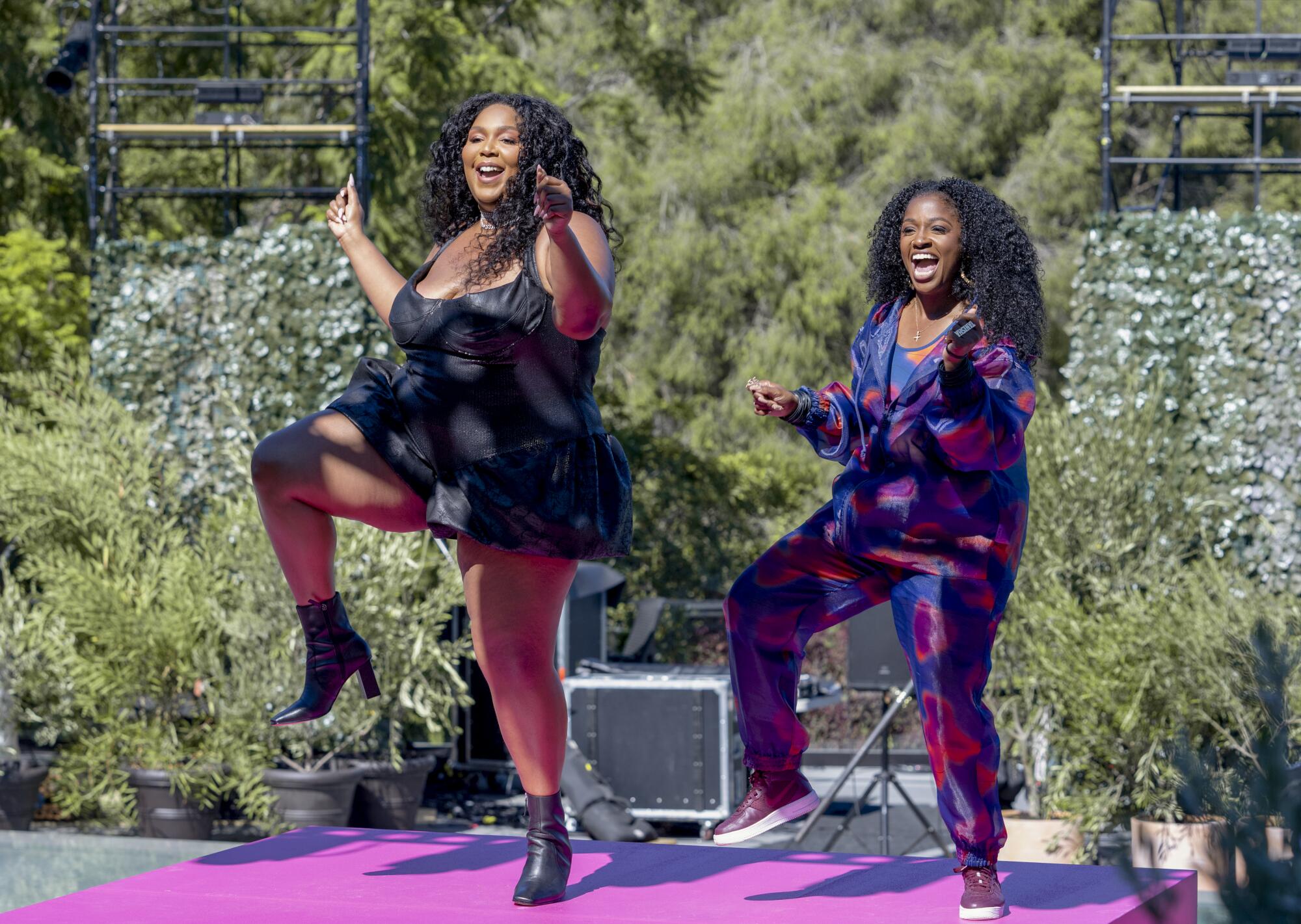
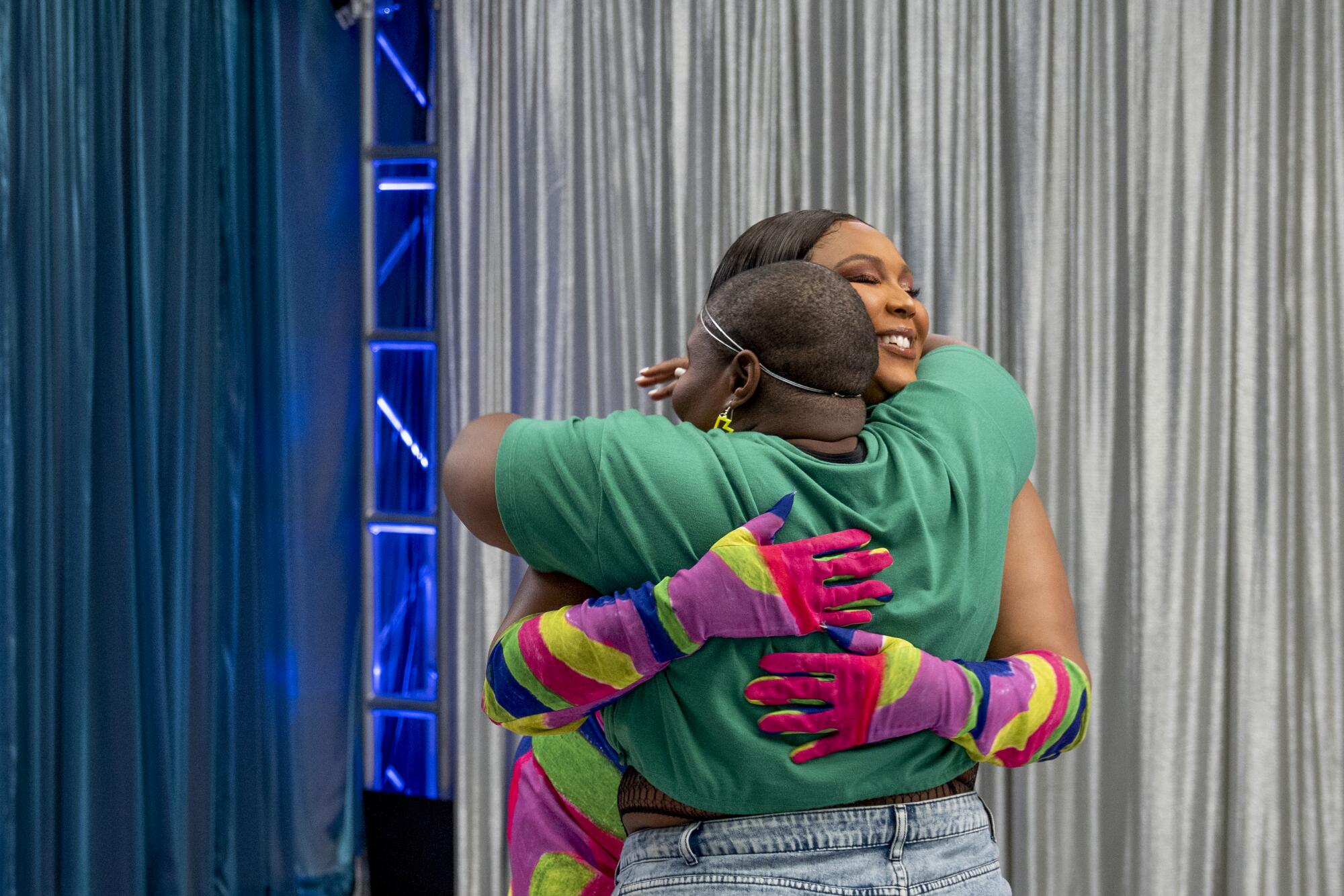
Recently turning 34, Lizzo came of age watching “America’s Next Top Model,” fascinated by its peek behind the curtain of the modeling world. But she also stanned for “Making the Band” — “the Danity Kane [season], I thought was incredible, I was like, ‘Oh, I want to be that’” — and worships at the altar of “RuPaul’s Drag Race,” which she calls “one of the greatest reality-competition shows on TV. RuPaul literally sets a stage for marginalized and underrepresented people and allows them to show everything off, be their greatest selves.”
Those hoping “Big Grrrls,” which debuted in March, would be a typically vicious reality-competition series were no doubt disappointed by the warm, communal vibe Lizzo and her creative team fostered. The prospective dancers rarely tear into one another, while Lizzo instills in them the importance of forming a bond. (After all, if they’re picked, they’ll have to work as a unit on tour.) Over the course of eight episodes, “Big Grrrls” becomes a therapeutic experience for the contestants and Lizzo, who all speak candidly about their challenges with social media, body-shaming and family trauma. That sort of emotional catharsis wasn’t necessarily what Lizzo was anticipating, but as it happened in real time, she leaned into it.
“I did not know [the show would be so therapeutic] until I did the class with DejaJoelle and the girls,” she says, referencing an episode in which the famed healing artist meets with them about body movement. “I got to see firsthand how open everybody was. They weren’t like, ‘What’s this got to do with dance?!’ A lot of them got it. And when I saw that — and how many people broke down and built themselves back up, and how many people were so vulnerable and expressive and honest — I was like, ‘This is incredible.’ I cried, obviously — we all cried that day.”
Lizzo is unafraid of such displays of emotion, just like she’s unapologetic about being, as she puts it, “so hands-on.” Raised in Detroit before moving with her family to Houston at 10, the performer was the kind to “do everything in the [school] group project. If you want it done right, you got to do it yourself.” (Lizzo even hired her sister to be her mole on the show, without letting the contestants know their relationship. “She was giving me all the tea,” she says mischievously.)
Lizzo will happily tell you that she’s competitive. “I’m a Leo Rising, first of all, with a Virgo Moon, baby. As a Taurus, I am a perfectionist, competitive winner. I’m going to f— win. I was that way with flute; I was that way with education; I wanted to be that way with everything that I do. But I think I learned that being perfect, for society’s definition, was going to hold me back and hurt me.”
That journey further exacerbated her competitiveness but it only made her dislike the way she looked, which messed with her head. She still vividly remembers her old thought process: “Well, I’m intelligent; I’m really good at flute; I’m ambitious; I’m going to go places with my talent, but physically, I’m starting to feel a setback,” she recalls. “I’m starting to get a lot of resistance with being accepted. Do I start taking phentermine pills, wearing waist trainers, trying to change my body and change things about myself? Do I stop eating? What do I do?”
Instead, she sought therapy, which wasn’t easy. “In the Black community, especially, we are starting to de-stigmatize therapy,” she says, before noting, almost as an aside, “Full disclosure? Growing up, they said, ‘Therapy is white-people s—.’ But I’d be like, ‘Well, I need to unpack trauma.’ [Talking about therapy] almost feels like spreading the gospel. I’m like, ‘Good news, you guys: I don’t walk outside thinking I’m going to die every day. I don’t lock up and get quiet and stop talking to the people I love, even if I’m in the same room with them. I don’t space out and wake up in the middle of the night with tingling arms and hands and feel like I have to go to the hospital.’ It was physical things that were happening to me.”
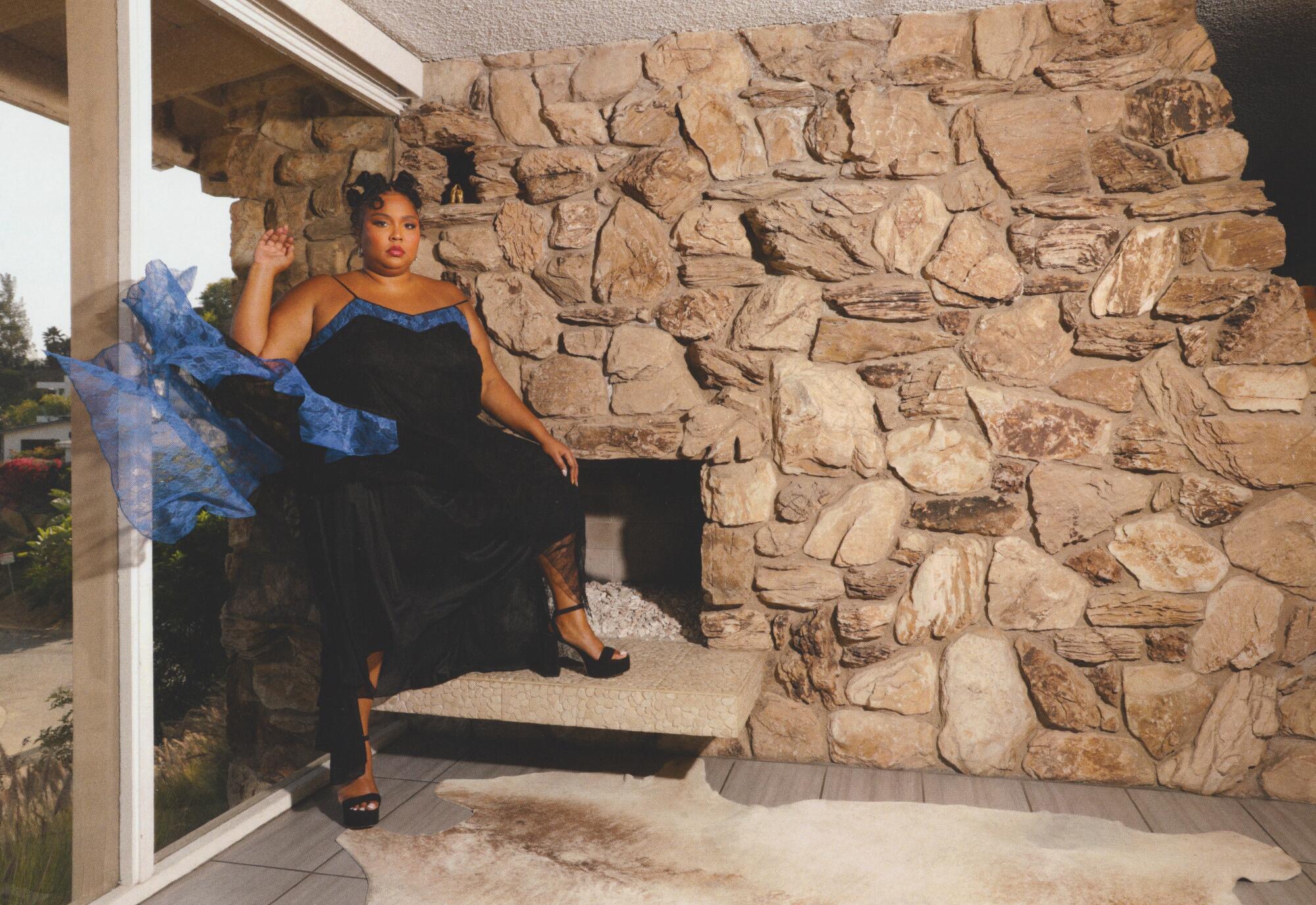
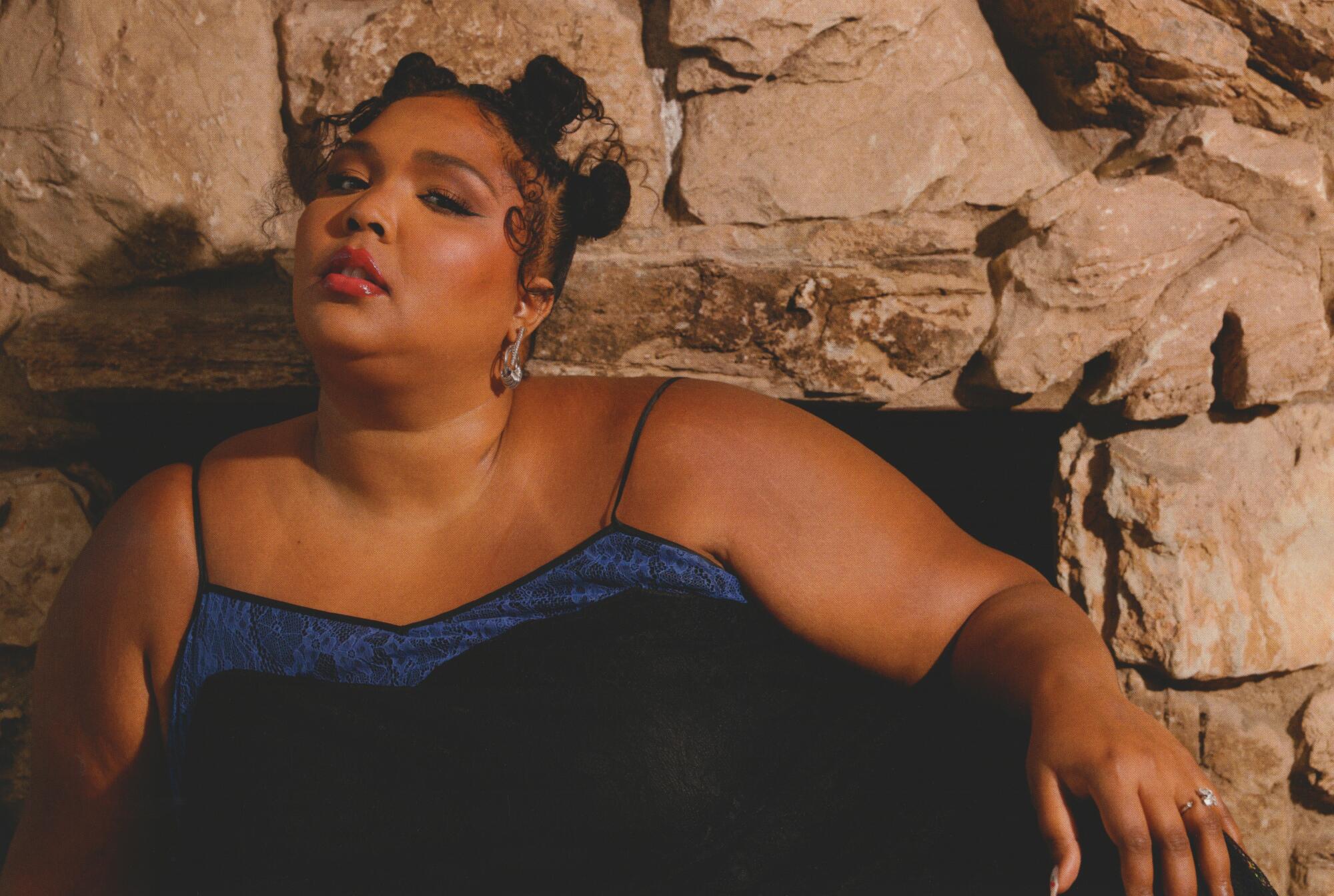
For as much as “Watch Out for the Big Grrrls” shows her in control of her burgeoning empire, she swears she doesn’t worry about anything as crass as brand maintenance. In fact, she dodges the question initially, instead suggesting, “I want to be a part of the betterment of human beings on this planet so we can make a better world — a world that this planet deserves.” (A few weeks after her interview with The Envelope, she’ll prove that she means what she says. After complaints that a lyric in her single “Grrrls” contained an ableist slur, she rereleased the song without the offending word, writing on social media, “This is the result of me listening and taking action. As an influential artist I’m dedicated to being part of the change I’ve been wanting to see in the world.”)
But when pressed about whether she thinks in terms of five-year plans, she almost scoffs. “Boy, no,” she replies. “When I was f— 21 years old, I thought I was going to sleep in my car [which she did for six months when she was just starting out] and die, so I didn’t have any expectations. Look how far I’ve gotten — if I put expectations on myself now, I think I’m in trouble. For me to go, ‘Well, I got three Grammys last time, I got to get six this time’? For what? Is it worth feeling like I failed?”
Which isn’t to say she doesn’t have aspirations. She auditioned to play Ursula in Disney’s live-action “Little Mermaid,” losing out to Melissa McCarthy, but she coyly teases some forthcoming projects she’s very excited about. “Well, bitch, I got a couple I can’t talk about,” she says, grinning. “Dream beyond dream, fully cried on the call with the team. Cried on set. I was on set — that’s all I am going to say.”
She speaks obliquely about “any future endeavors I do, whether it’s television or movies or theater,” but when she ponders role models, Queen Latifah comes to mind. “Queen Latifah, I am very grateful for because she has a career that gives me a blueprint to believe in myself,” she says. “People forget that I started off as a rapper — we have that in common, and she’s great and I’m great. She started off as a rapper, became an actress, was on some of the most iconic television shows, like ‘Living Single,’ [whose concept] was quickly and very publicly taken by ‘Friends,’ which became one of the most commercially successful sitcoms. Queen Latifah is a genius — she went on to have her own talk show, went on to star in massive Oscar-nominated movies, put out a jazz album, had a clothing line.”
Is that a hint to the different pursuits Lizzo wants to tackle? “My goals have always been the same,” she says. “I want to quit my day job and fully support myself with music. I want to be able to take care of my family — buy my family a beautiful house.” She laughs sheepishly at the memory. “I wanted it to be gold-plated, but I was very young — realistically, we can’t afford that.”
But she’s not done listing the items on her personal wish list. “I want to travel the world and tour, and I want to play Japan. I want to sell out Madison Square Garden. I wanted a Big Grrrl show. I wanted a shapeware line. I wanted a Big Grrrl agency. And I wanted to write a song that the whole world could sing back to me.”
It’s pointed out that she’s accomplished almost all of those goals already.
“I just sold out Madison Square Garden twice,” she says, giddily. “I haven’t played it yet, but it’s coming. I’m going to cry on stage. And I am ready for that moment where I write a song that the whole world sings back at me. I think I’ve got it on this album.”
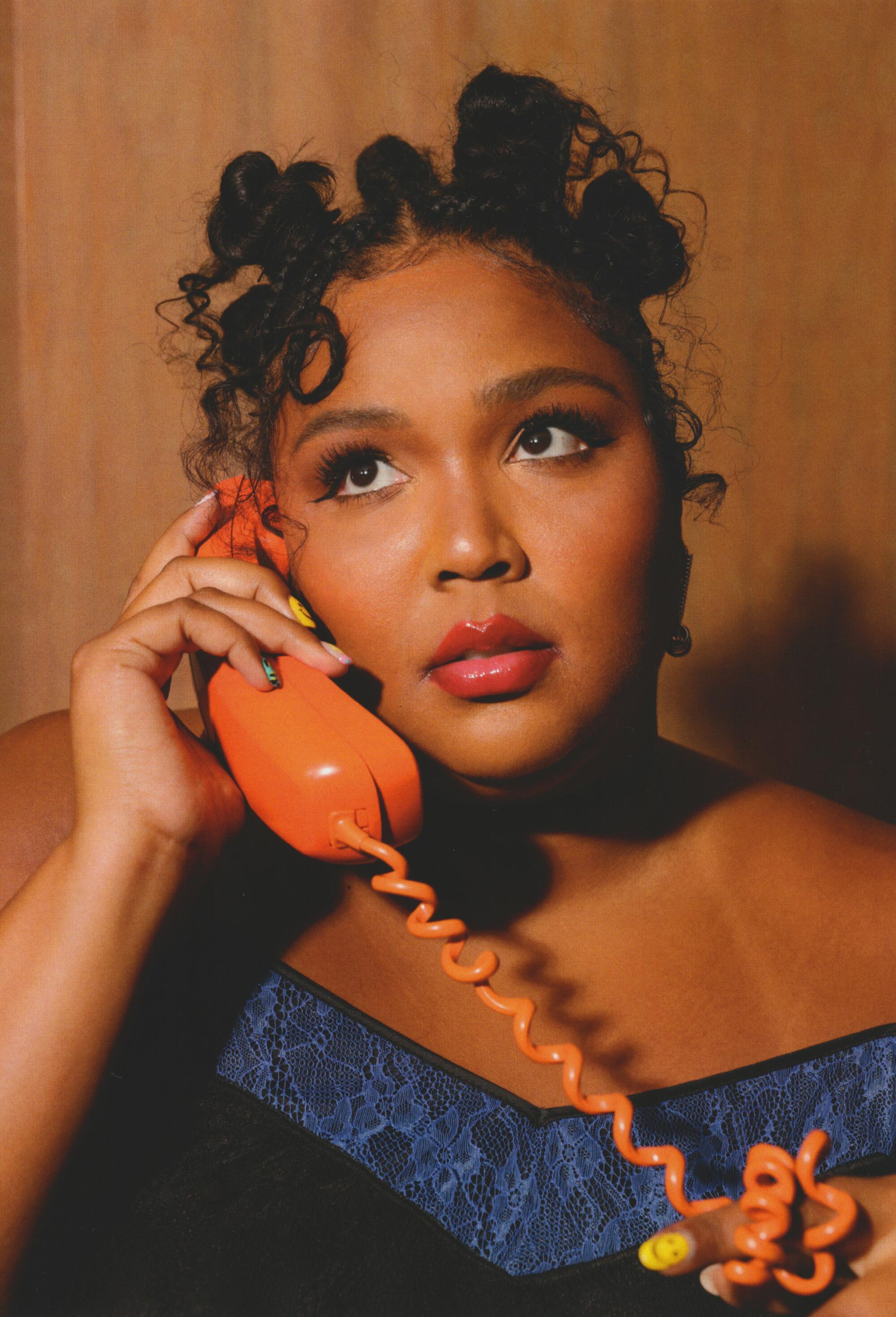
More to Read
From the Oscars to the Emmys.
Get the Envelope newsletter for exclusive awards season coverage, behind-the-scenes stories from the Envelope podcast and columnist Glenn Whipp’s must-read analysis.
You may occasionally receive promotional content from the Los Angeles Times.








